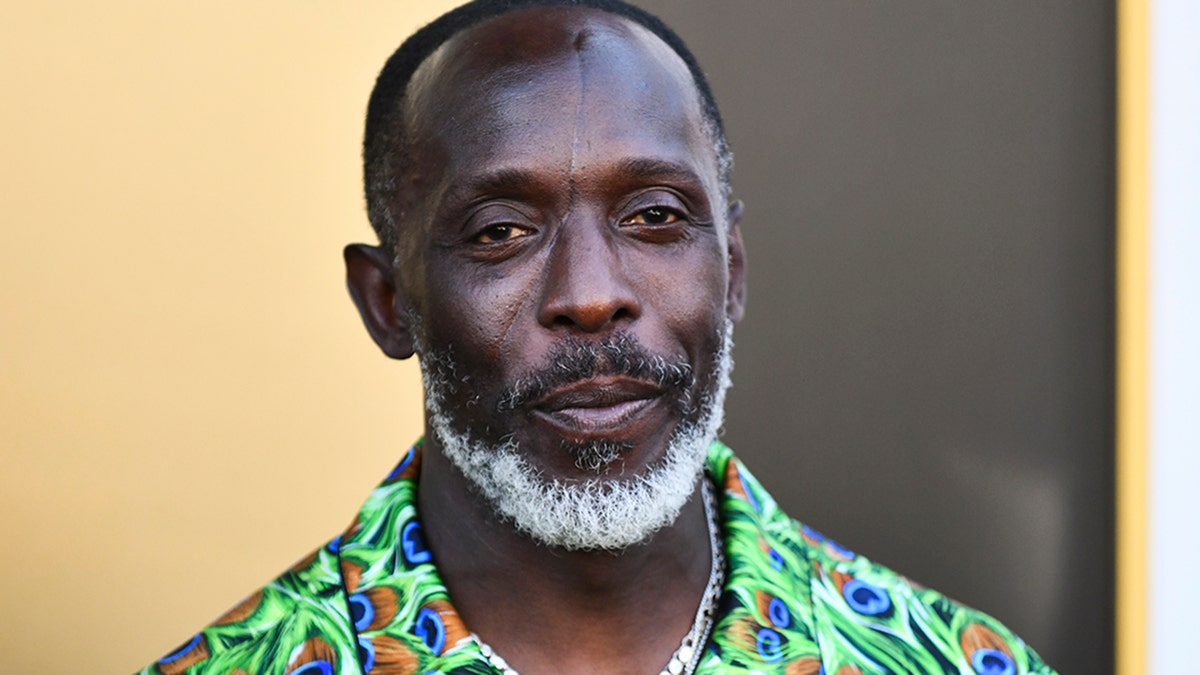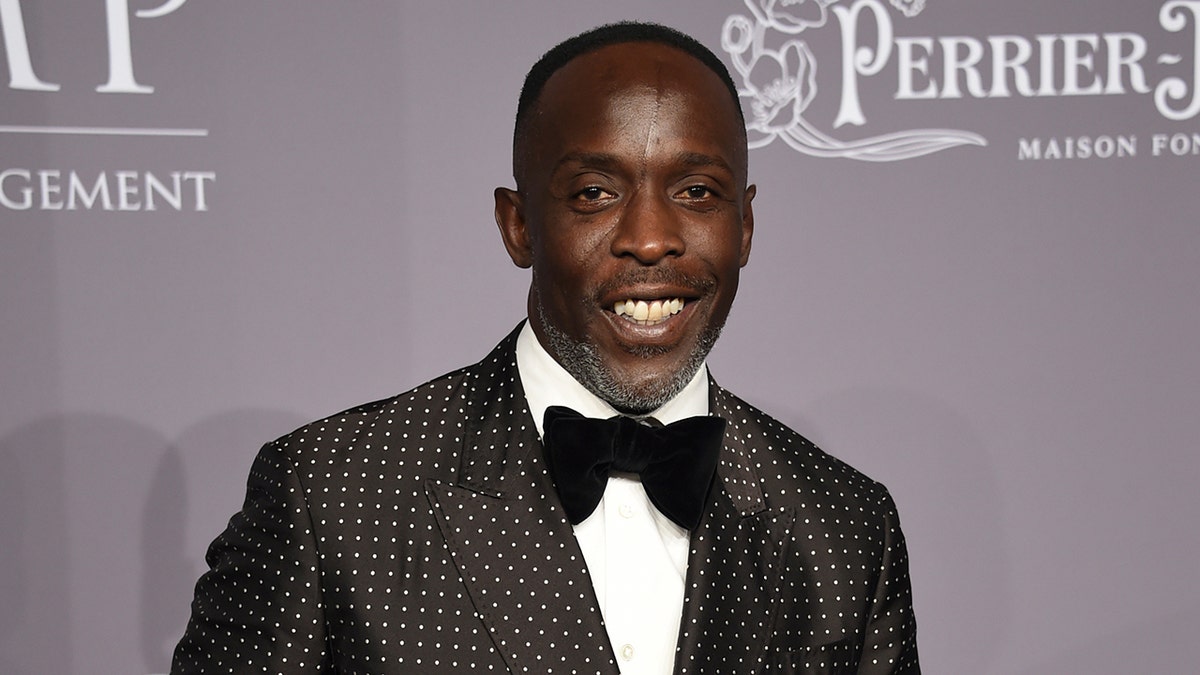Fox News Flash top Entertainment headlines 09/07
Fox News Flash top entertainment and celebrity headlines are here. Check out what's clicking today in entertainment.
Michael K. Williams was never shy about discussing his mental health and drug addiction prior to his death at age 54.
According to The New York Post, drug paraphernalia was found in the five-time Emmy nominee’s apartment, leading many to believe that he died of a drug overdose given his past comments about his own addiction struggles. However, no official cause of death has been confirmed.
Months before his untimely death, Williams revealed that he was seeking mental health treatment after struggling with his Emmy-nominated performance in HBO’s "Lovecraft Country." Speaking on the "Tamron Hall Show," he noted that he was taking therapy seriously after looking inward to play the role of Montrose Freeman.
"I just started therapy, you know, and really taking that seriously and starting to unpack, like you said, the critic in my head and what and how that has affected my — my actions, my responses to certain situations, my relationships," he said in February.
At the time, he was promoting his role in the movie "Body Brokers" about a nefarious drug treatment center in Los Angeles, bringing his past issues of drug abuse front-and-center in his mind. He said that the story, which deals heavily in the capitalism and exploitation that can exist in the recovery industry, made him "sick to my stomach."

Michael K. Williams opened up about his drug addiction struggles in several interviews before his death. (Rodin Eckenroth/FilmMagic)
"Drugs and alcohol are not the problems, they’re merely symptoms of the problem. And once those things go away, the real work begins, you know…working on all the character defects, the moral compass — the skewed moral compass," he told the host.
He added: "Those are the things that need to be addressed. Those are the reasons we got high in the first place, and our inability to deal with life on life’s terms."
Williams has been speaking about addiction for years, but it was an interview in 2020 with Men’s Health in which he got extra personal and noted the thoughts of suicide that contributed to his drug use.
"Pain. In a word, a lot of pain. A lot of trauma early on that I didn’t have the proper tools to deal with. My mom was very strict. The beatings were very severe growing up. She was determined to not have her two sons run amok," he shared at the time.
He said that his mother’s way of protecting him led him down a dark path of feeling inadequate that ultimately led to a suicide attempt.
"I was 17. I was lost," said Williams. "I was very awkward with the ladies. Drugs were there. And I was already self-medicating. And I just got lost. I just remember feeling like, ‘Eh, maybe the world will be better off without me.’ And I took a bottle of pills, woke up to my stomach being pumped."
In 2016, he told NPR that he was at the height of his addiction during his now revered run on "The Wire," where he played a local, gay stickup man who stole from fellow criminals. The character was dark and beloved by fans. However, the spotlight only exacerbated Williams’ issues. Instead of doing what he preached on "The Tamron Hall Show," he used drugs to hide from his larger issues.
"I didn't feel worthy of opportunity like [the role on ‘The Wire’], and when I was given this character, Omar, I could've used it as a tool, as a nurturing tool for myself. It could've been cathartic for me, [but] I decided to wear it as a Spider-Man suit and just fly around and go, ‘Whee! Look at me! I got web in my hands!’ Instead of actually doing the work and finding out how I could use this character to make myself feel better about me, I used it instead of me. It was like my crutch," he said at the time.

Actor Michael K. Williams was perhaps best known for his character Omar on ‘The Wire.’ (Evan Agostini/Invision/AP, File)
JEAN-PAUL BELMONDO, FRENCH ACTOR AND 'BREATHLESS' STAR, DEAD AT 88
It wasn’t until he found a pastor in New Jersey that was willing to help him out that he began a real road to recovery.
"I have strategies that I go to. Number one, I keep a very good, solid team of people around me when I’m doing these dark roles. I call them my lasso. Tie a little lasso around my ankle and they’re keeping me up," he told Deadline of his treatment in 2017. "Now I practice new strategies for how to arrive at characters. I’m keeping good, healthy minded people around, and just protecting myself. Being responsible."
He spoke with NJ.com earlier this year, in what would become one of the actor’s last interviews, where he discussed the dark period in his life in which he was still developing that support system.
"I was playing with fire," Williams said of his post-show substance abuse days. "It was just a matter of time before I got caught and my business ended up on the cover of a tabloid or I went to jail or, worse, I ended up dead. When I look back on it now, I don’t know how I didn’t end up in a body bag.
CLICK HERE TO SIGN UP FOR OUR ENTERTAINMENT NEWSLETTER
"Eventually, I got so sick and tired of this charade. No one who was in my circle, who knew me as Mike, was allowing me to get high. I had to slip away to do drugs. I had to hide it. I’d be gone for days at a time. I was lonely in that part of my life. I was broke, broken and beat up. Exhausted. Empty. I finally said, ‘I can’t do this no more.’ I didn’t want to end up dead."
CLICK HERE TO GET THE FOX NEWS APP
In the same interview, he described how finding his place with the pastor and his church allowed him not only to find peace and a path to recovery, but it kept him busy as a pillar of his local community.
If you or someone you know is struggling with mental health or drug addiction, please contact the Substance Abuse and Mental Health Services Administration at 1-800-662-HELP (4357).















































